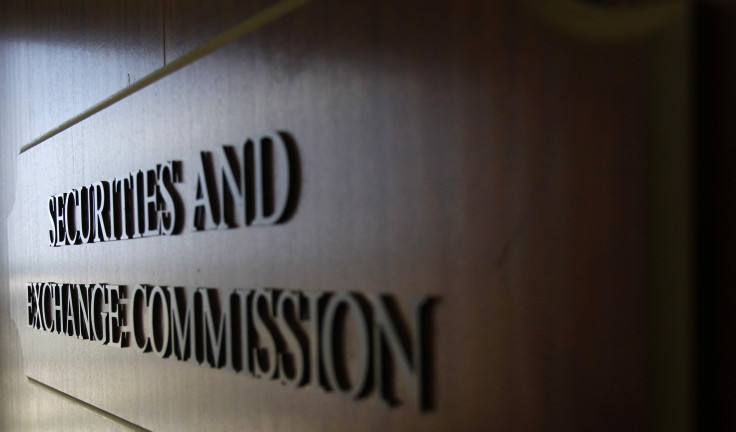Big Connection Between Campaign Contributions and Lack of SEC Prosecutions: Study

For all the recent drama about big banks paying huge fines, some of the largest financial institutions, like private equity firms, appear to be evading federal registration regulations and getting off scot-free.
Last month, for example, the New York Times documented how the Securities and Exchange Commission (SEC) has brought only a single enforcement action against one private equity firm.
Similarly, in the wake of a three-year-old, high-profile pay-to-play scandal, the SEC established an anti-corruption rule banning Wall Street firms from donating money to politicians who give those firms contracts to manage public pension money. Yet, even as money has continued to flow from Wall Street into state and local politics, the SEC has prosecuted just one case under the now three-year-old rule, a rule that may be overturned by a Republican lawsuit.
Why such seemingly lax enforcement? A new analysis of SEC data suggests a way to find the answer: Follow the campaign contributions.
Conducted by Maria Correira of the London Business School, the analysis examines more than 7,300 episodes of corporations issuing corrections of their financial statements between 1996 and 2006. Because such restatements are typically considered trigger events for SEC enforcement actions, Correira cross-referenced them with campaign contributions and lobbying expenditures from the firms.
If, as the saying goes, justice is blind, the data would show little correlation between firms' political expenditures and their likelihood of being prosecuted. Instead, Correira found that "politically connected firms are on average less likely to be involved in an SEC enforcement action and face lower penalties if they are prosecuted by the SEC." Specifically, Correira discovered that firms that increased their PAC contributions by $1 million over five years ended up halving their probability of being prosecuted.
Data from the Project on Government Oversight has documented that since 2001, more than 400 former SEC officials filed disclosure forms documenting their plans to represent firms before the SEC. Correira's report shows that this revolving door also influences financial prosecutions, as companies that employ lobbyists who once worked for the SEC "experience a larger reduction in the probability of enforcement and in penalties than those that do not."
Correira theorizes that the correlation between campaign contributions and a lack of prosecution has to do with the SEC's perception of political consequences for itself and its budget in choosing targets. As the theory goes, the more political donations a particular firm makes to key lawmakers and the higher profile a firm's relationship is with those lawmakers, the more likely it may be that those lawmakers pressure the SEC to avoid prosecuting those firms -- and the more likely those lawmakers are to try to reduce the SEC's budget if a prosecution goes forward.
"The presence of an established, public relationship between the firm and key politicians could be sufficient because the SEC might be aware of the increased costs of initiating an investigation against such a firm," Correira wrote.
In an interview with IBTimes, former SEC counsel Scott Kimpel acknowledged that the agency does have to weigh how to best maximize its limited resources.
"At the end of the day, the SEC only has about 1,000 enforcement officials, so they can't possibly go after every single case of wrongdoing," he said.
In her paper, Correira writes that one big takeaway from the data she has compiled is the fact that "the SEC is influenced by considerations other than the merits of (a) case."
That same conclusion, of course, has been the subject of controversy over Justice Department's financial prosecutions -- or lack thereof.
In a 2012 speech, then-Assistant Attorney General Lanny Breuer said that the larger economic consequences of sanctioning Wall Street banks should be a factor in whether or not the government moves ahead with a prosecution. In a subsequent interview with PBS Frontline about why the Justice Department has not criminally prosecuted any bankers connected to the 2008 financial collapse, Breuer reiterated that the Justice Department believes the "economic effect" of a successful prosecution "has to be a factor" in deciding whether or not to prosecute an institution that breaks the law.
A few months after that, Attorney General Eric Holder told a U.S. Senate panel that it has become "difficult to prosecute" large banks when prosecutors know "a criminal charge ... will have a negative impact on the national economy." Holder said fears of negative economic consequences has "an inhibiting impact" on the government's decision to prosecute cases.
Following Breuer and Holder's comments, the notion of external factors influencing prosecutorial decisions was heavily criticized as a "too big to jail" doctrine. Holder later walked back those statements, insisting, "No company, no matter how large or how profitable, is above the law.''
© Copyright IBTimes 2024. All rights reserved.






















